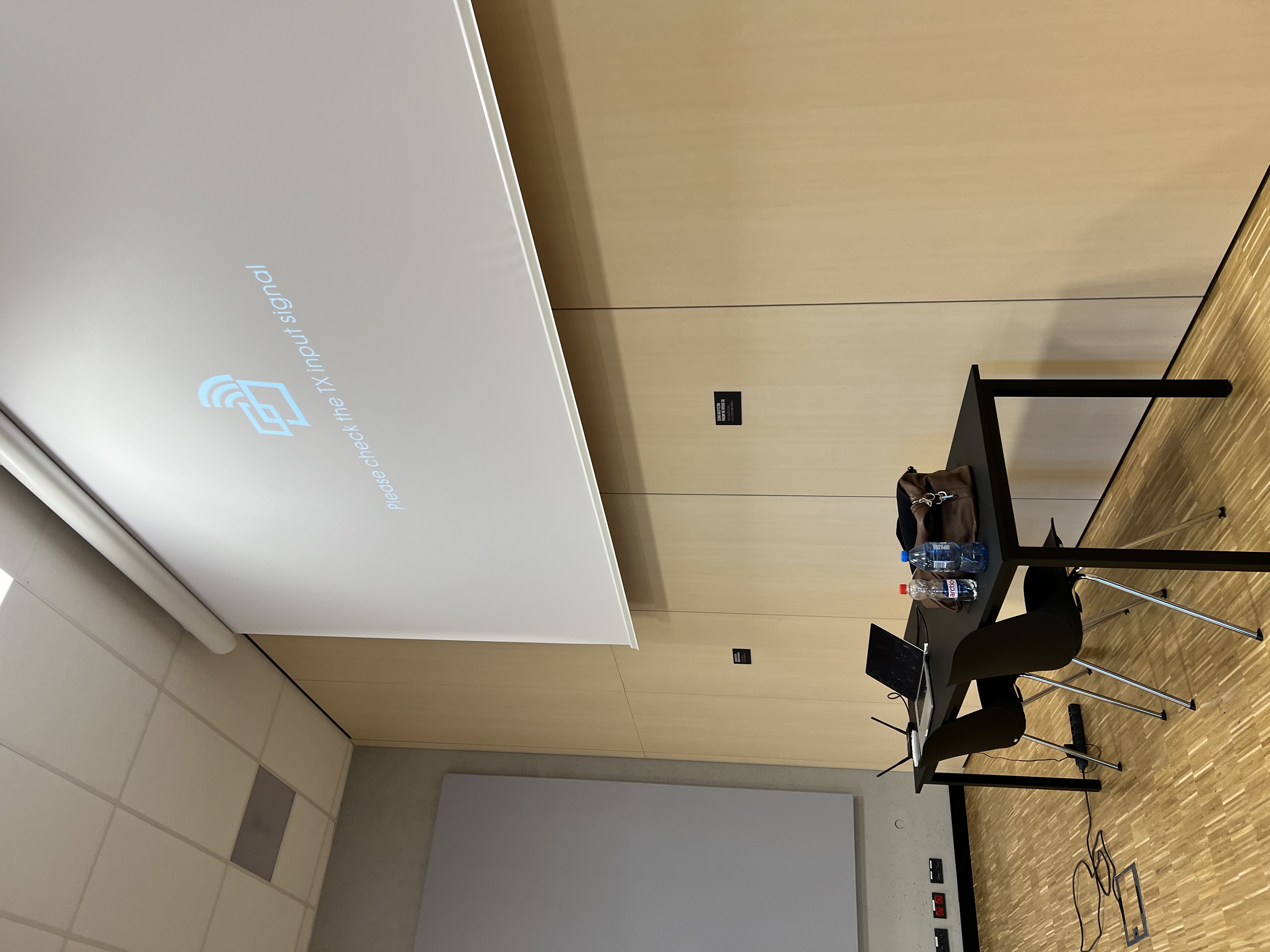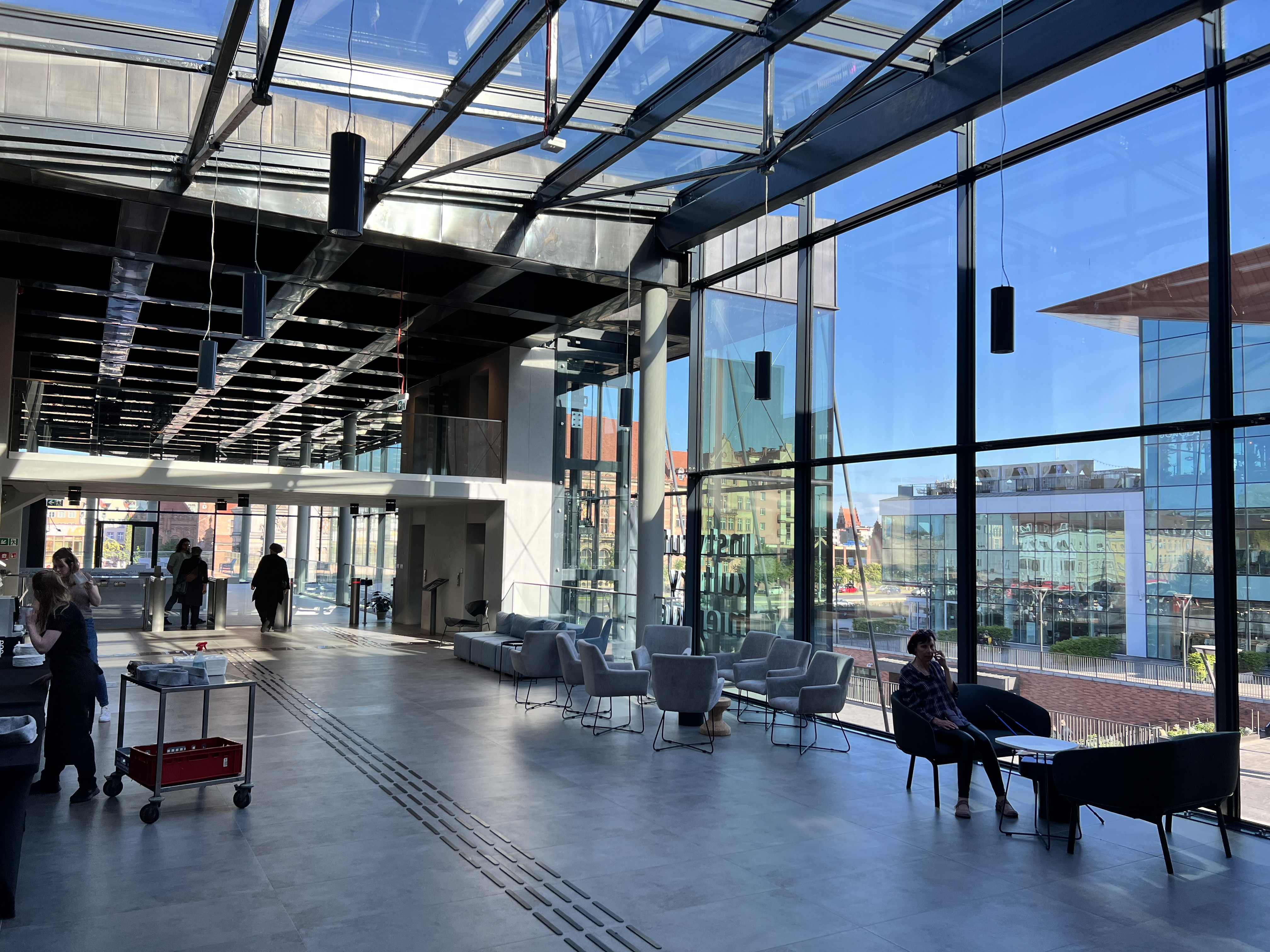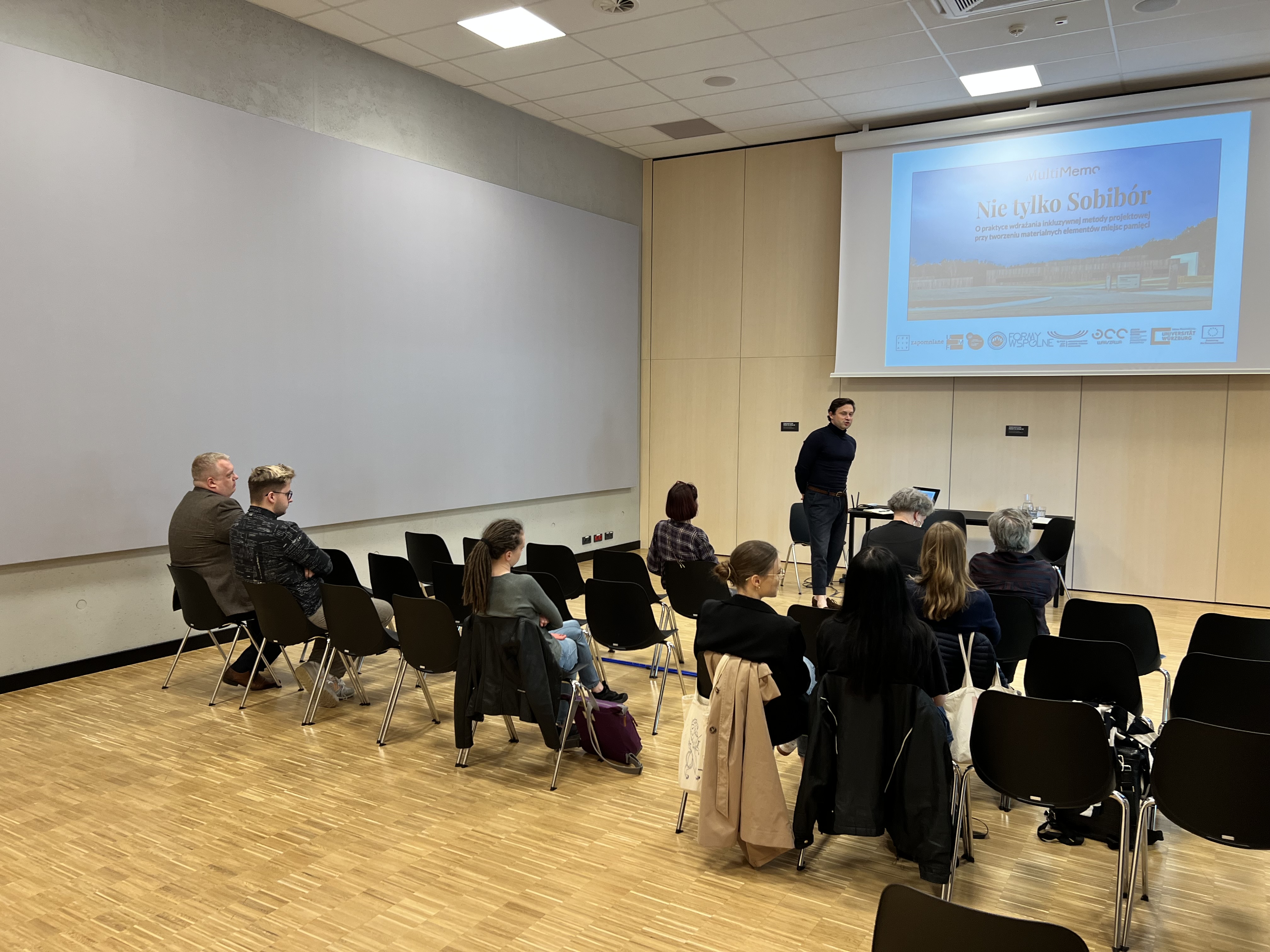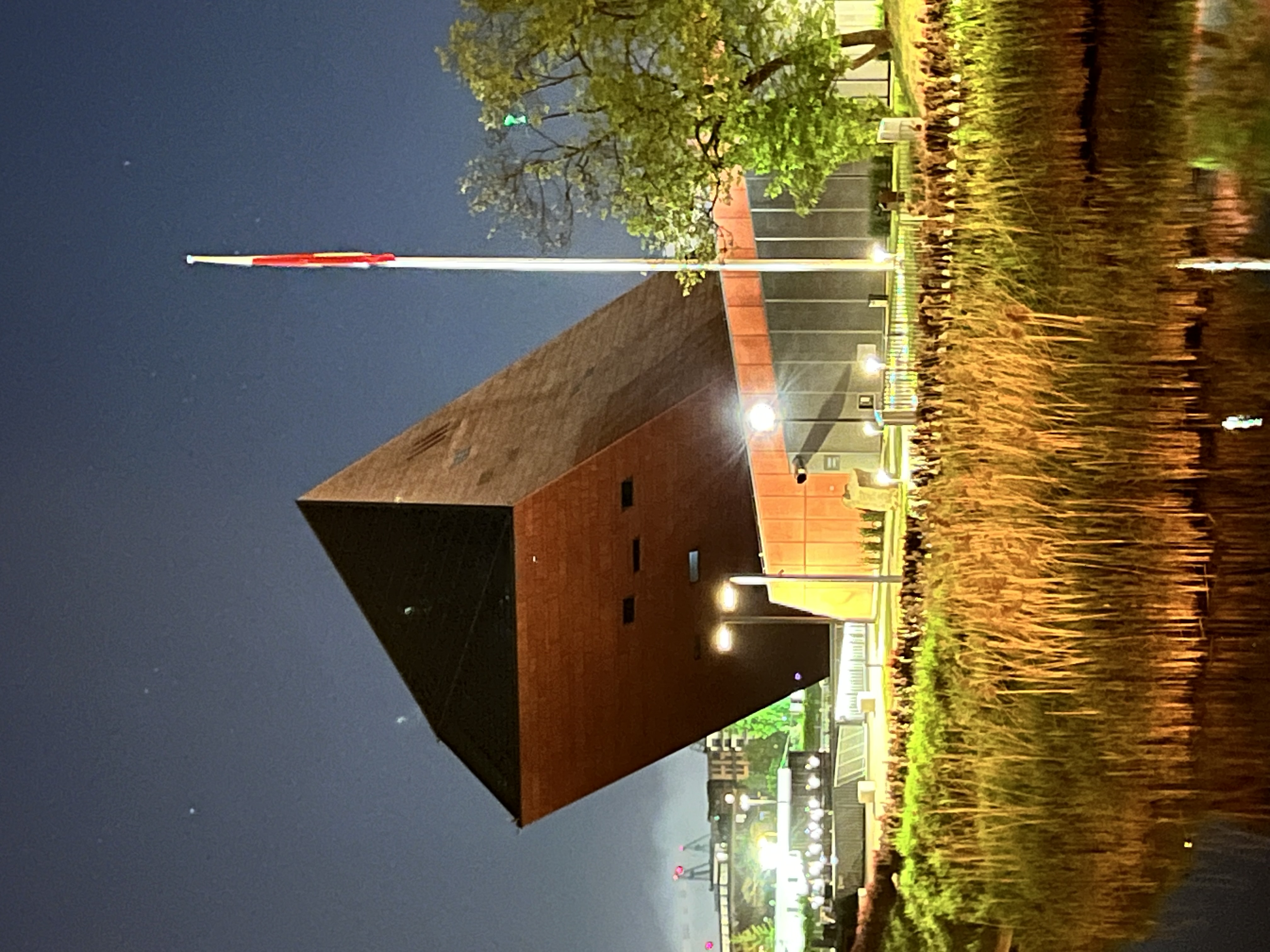NIE TYLKO SOBIBÓR. O praktyce wdrażania inkluzywnej metody projektowej.
Na spotkaniu podzieliliśmy się naszymi doświadczeniami i zaprosiliśmy do dyskusji o roli dialogu, konsultacji i budowaniu wzajemnego zaufania podczas procesu powstawania upamiętnienień, niezależnie od ich skali i charakteru. Zastanawialiśmy się wspólnie, jaki wpływ na krajobraz zbiorowej pamięci ma zarówno ów proces jak i ostateczna forma upamiętnienia. Co należy zrobić, żeby po jej powstaniu zapewnić ciągłość pamięci?Opowiedzieliśmy też o kulisach naszej pracy, zwłaszcza dotyczącej Muzeum i Miejsca Pamięci w Sobiborze, w czasie której spotykają się różne wrażliwości, idee i sposoby wdrażania polityki historycznej.
Było to wydarzenie, organizowane przez fundacje Formy Wspólne w ramach projektu MultiMemo: Multidirectional Memory: Remembering for Social Justice, który realizujemy wspólnie z Fundacją Zapomniane, FestivALT, Fundacją Dokumentacji Cmentarzy Żydowskich, Fundacją Urban Memory, JCC Warszawa, CEJI a contribution to an inclusive Europe, oraz Hochschule für Jüdische Studien Heidelberg dzięki wsparciu Unii Europejskiej w ramach programu Citizens, Equality, Rights and Values (CERV).
Na spotkaniu podzieliliśmy się naszymi doświadczeniami i zaprosiliśmy do dyskusji o roli dialogu, konsultacji i budowaniu wzajemnego zaufania podczas procesu powstawania upamiętnienień, niezależnie od ich skali i charakteru. Zastanawialiśmy się wspólnie, jaki wpływ na krajobraz zbiorowej pamięci ma zarówno ów proces jak i ostateczna forma upamiętnienia. Co należy zrobić, żeby po jej powstaniu zapewnić ciągłość pamięci?Opowiedzieliśmy też o kulisach naszej pracy, zwłaszcza dotyczącej Muzeum i Miejsca Pamięci w Sobiborze, w czasie której spotykają się różne wrażliwości, idee i sposoby wdrażania polityki historycznej.
Było to wydarzenie, organizowane przez fundacje Formy Wspólne w ramach projektu MultiMemo: Multidirectional Memory: Remembering for Social Justice, który realizujemy wspólnie z Fundacją Zapomniane, FestivALT, Fundacją Dokumentacji Cmentarzy Żydowskich, Fundacją Urban Memory, JCC Warszawa, CEJI a contribution to an inclusive Europe, oraz Hochschule für Jüdische Studien Heidelberg dzięki wsparciu Unii Europejskiej w ramach programu Citizens, Equality, Rights and Values (CERV).
NOT ONLY SOBIBÓR. On the practice of implementing an inclusive design method.
At the meeting, we shared our experiences and invited to discuss the role of dialogue, consultation and building mutual trust during the process of creating commemorations, regardless of their scale and nature. We wondered together what impact both this process and the final form of commemoration have on the landscape of collective memory. What should be done to ensure the continuity of memory after its creation? We also talked about the background of our work, especially regarding the Museum and Memorial Site in Sobibór, during which various sensitivities, ideas and ways of implementing historical policy come together.
This was the event organized by the Common Forms foundations within the framework of the MultiMemo: Multidirectional Memory: Remembering for Social Justice project, which we are carrying out jointly with the Zapomniane Foundation, FestivALT, the Foundation for the Documentation of Jewish Cemeteries, the Urban Memory Foundation, JCC Warsaw, CEJI a contribution to an inclusive Europe, and the Hochschule für Jüdische Studien Heidelberg
thanks to the support of the European Union under the Citizens, Equality, Rights and Values (CERV) program.
This was the event organized by the Common Forms foundations within the framework of the MultiMemo: Multidirectional Memory: Remembering for Social Justice project, which we are carrying out jointly with the Zapomniane Foundation, FestivALT, the Foundation for the Documentation of Jewish Cemeteries, the Urban Memory Foundation, JCC Warsaw, CEJI a contribution to an inclusive Europe, and the Hochschule für Jüdische Studien Heidelberg
thanks to the support of the European Union under the Citizens, Equality, Rights and Values (CERV) program.






